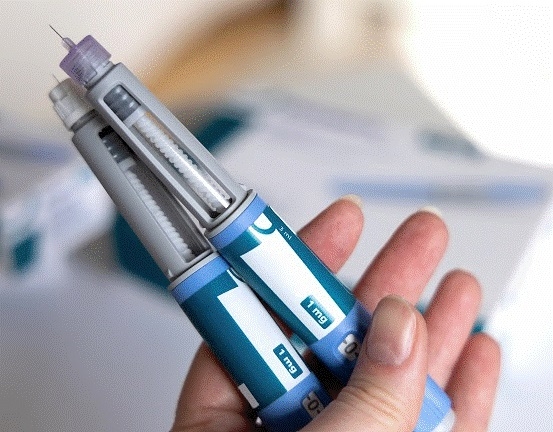Sturdy find that glucose-lowering, weight-loss drugs not linked to suicide risk in older adults
University of Florida (UF) Health News
By Tyler Francischine
~ A new study shows that GLP-1RA drugs, such as Ozempic and Wegovy, are not associated with a higher risk of suicide in older adults. ~
Gainesville, Florida — A study led by researchers in the University of Florida College of Pharmacy has found that GLP-1RA drugs, a class of glucose-lowering medication, are not associated with an increased risk of suicidal thoughts or behaviors in older adults.
The study was published July 16 in the Annals of Internal Medicine. See the article at acpjournals.org/doi/10.7326/M24-0329.
GLP-1RA drugs, with tradenames such as Ozempic and Wegovy, were traditionally prescribed to patients with Type 2 diabetes, but they have gained recent popularity for their ability to treat obesity and lower body mass index by altering the brain’s reward mechanisms to reduce appetite.
In July 2023, the European Medicines Agency published a statement about its ongoing review of the drugs in light of anecdotal evidence patients reported about suicidal thoughts and self-injury while using these medications. Read the statement at ema.europa.eu/en/news/ema-statement-ongoing-review-glp-1-receptor-agonists.
UF Health researchers investigated this potential association by studying four years of Medicare administrative data from more than 21,000 adults aged 66 and older who have Type 2 diabetes, no medical record of suicidal ideation, and who were initiating treatment with either GLP-1RAs or a pair of other glucose-lowering medications. By using Medicare claims data to compare the occurrence of suicidal behaviors after being prescribed the medications with that of similar patients matched on clinical and demographic factors, the researchers found no increase in the risk of suicidal ideation or behaviors associated with GLP-1RA drugs.
“Our data suggest there’s no statistical difference in the risk of suicidal ideation or behavior between users of GLP-1RAs and other glucose-lowering medications,” said Serena Jingchuan Guo, M.D., Ph.D., an assistant professor of pharmaceutical outcomes and policy in the UF College of Pharmacy and the study’s senior author. “However, the results may not be generalized to extend to younger populations, like adolescents, for whom these drugs are prescribed to treat Type 2 diabetes and obesity.”
The first author of the publication is Huilin Tang, a doctoral student in the College of Pharmacy Department of Pharmaceutical Outcomes and Policy. Guo’s team of interdisciplinary collaborators included William Donahoo, M.D., a clinical professor and chief of the UF College of Medicine Division of Endocrinology, Diabetes, and Metabolism; Yi Guo, Ph.D., an associate professor in the UF College of Medicine Department of Health Outcomes and Biomedical Informatics, or HOBI; and Jiang Bian, Ph.D., a professor and division director of biomedical informatics in HOBI and UF Health’s chief data scientist and chief research information officer.
Guo said the research, funded by the National Institute of Diabetes and Digestive and Kidney Diseases, aims to improve health outcomes for the millions of adults using GLP-1RAs.
“Our ultimate goal with this research is to identify the clinically beneficial users for these newer glucose-lowering drugs, maximize their benefits, and minimize the potential risks associated with their use,” Guo said.
